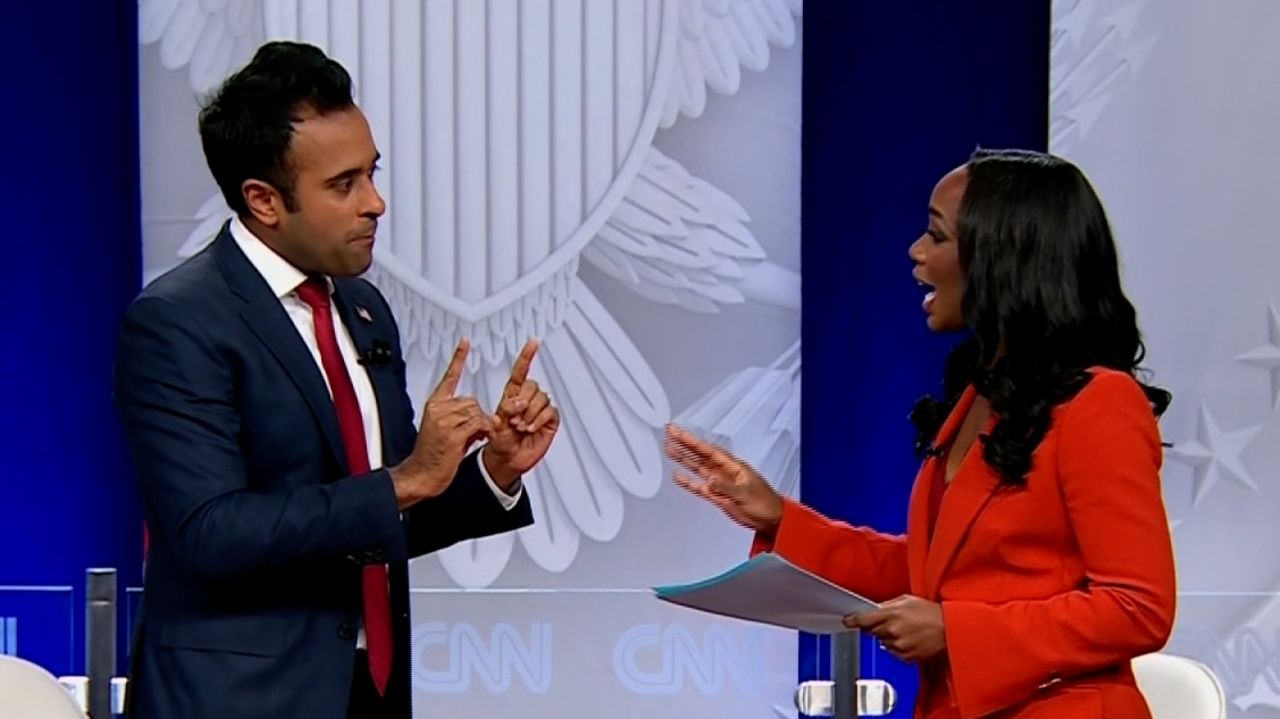Entrepreneur Vivek Ramaswamy maintained his previous conspiracy theories about the Capitol riot on January 6, 2021, that it was an “inside job” when pressed repeatedly by CNN moderator Abby Phillip about the falsehoods.
When asked by Phillip if Ramaswamy was concerned that a convicted Capitol rioter highlighted his comments during sentencing, Ramaswamy began to double down on his assessment.
“The reality is, we know that there were federal law enforcement agents in that field. We don’t know how many,” he said before Phillip tried to jump in to follow up.
But as Phillip spoke, Ramaswamy also interjected, saying that her interruption is because “the establishment doesn’t approve of this message.”
Ramaswamy said “this is important to talk about,” to which the crowd applauded.
“You were saying there were federal agents in the crowd on January 6. There’s no evidence that there were federal agents in the crowd,” Phillip said.
But Ramaswamy doubled down on his assertion, saying that he’s seen “multiple informants suggesting that they were.”
More context: This is one of the most pernicious right-wing falsehoods about the January 6 insurrection. It’s false, unsupported by any real evidence, and has been repeatedly rejected by FBI Director Christopher Wray, a lifelong Republican appointed by then-President Donald Trump.
This particular conspiracy theory emerged in summer 2021 in a series of articles and TV segments from pro-Trump news outlets. The false and self-serving narrative claims the US government orchestrated the US Capitol attack, sending undercover FBI agents to trigger the violence, so they could frame Trump supporters and make Trump look bad.
The supposed evidence backing up the theory is nothing more than a conspiratorial web of unproven claims, half-truths and inaccurate drivel from Trump supporters who have aggressively tried to absolve him of responsibility for the deadly assault that day.
“If you are asking whether the violence at the Capitol on January 6 was part of some operation orchestrated by FBI sources and/or agents, the answer is emphatically not. No. It was not violence orchestrated by FBI sources or agents,” Wray said last month.
About 850 rioters have been convicted of crimes stemming from January 6, according to the Justice Department. Most of them pleaded guilty, and many acknowledged that they were at the Capitol because they supported Trump.
Ramaswamy has a history of peddling disinformation about January 6. At a campaign event last week in Iowa, he falsely claimed “the cops were just letting them in,” referring to the rioters. Here’s a previous CNN fact check from January 2022 on this specific lie.
CNN’s Marshall Cohen contributed reporting to this post.





